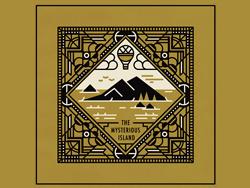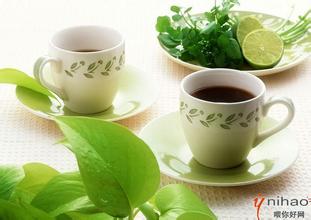Introduction to the flavor and taste of Salvadoran coffee in Mercedes Manor
The diet of Salvadorans is developed on the basis of Spanish and Indian cooking. Urban residents mainly eat western food, the staple food is rice, beans, corn, milk, fruit, etc., popular urban and rural drinks are cola, beer, coffee and so on.
Religion
More than 90% of El Salvador's residents believe in Catholicism, which is a branch of Christianity, with the Vatican as its organizational center, the pope as its supreme leader, and the "holy rule" and "ecclesiastical system." [14]
Military editor
The Salvadoran armed forces include the army, air force and navy. The Salvadoran armed forces withdrew from the Central American Union in 1840, participated in a communist insurgency in 1931 and participated in a football war in Honduras in 1969; during the civil war, El Salvador's most elite battalion Atlacatl, involving the massacre in the village of Mozote in El Salvador, was more than halved after the civil war ended in 1992. [8]
In 2009, El Salvador's military expenditure accounted for 0.6 per cent of GDP. In 2010, the total number of domestic troops in El Salvador was 32500, of which 1449214 were men and 1611248 were women of the appropriate age; the number of eligible for enlistment was 1079038 men and 1373368 women. In 2011, the country spent $25 million on military spending.
El Salvador emphasized the maintenance of national sovereignty and territorial integrity; respect for human rights and fundamental freedoms; the self-determination of peoples and non-interference in each other's internal affairs; the peaceful settlement of disputes in accordance with international law; the pursuit and maintenance of international peace and security; the non-threat of use of force; support for the establishment of a new international order on the basis of equality, justice and cooperation and the democratization of international relations. Attach importance to the development of traditional relations with the United States and Central American neighbors and actively participate in the process of regional integration in Central America
Pacamara is the artificial breeding variety of Pacas and Maragogipe. It was first cultivated by researchers in El Salvador in 1958. Pacamara is an excellent variety under rare artificial breeding, which is better than blue, and perfectly inherits the advantages of the mother plant. Both the excellent taste of Pacas and the large size of Maragogipe are inherited by raw bean granules. The bean body is at least 70% and 80% of that of elephant beans, with more than 17 orders and more than 100% and more than 18 eyes. Average bean length 1.03 cm (general bean about 0.8-0.85 cm) average bean width 0.71 cm (general bean about 0.6-0.65), thickness 0.37 cm, bean shape plump and round. The biggest feature of this variety is that it is sour, lively and tricky, sometimes biscuit, sometimes fruity, thick and greasy. The best quality Salvadoran boutique coffee from El Salvador and Guatemala is concentrated in the volcanic areas of Santa Ana in the west and Charantanan fruit in the northwest. The top 10 cup tests in recent years almost all come from these two producing areas, with an altitude of about 9-1500 meters above sea level. Mainly bourbon (68%), followed by Pacas (29%), mixed-race Pacamara, Duraai and Kaddura accounted for only 3%.
The coffee harvest lasts from November to March. The fresh fruit of coffee is picked by hand.
On the whole, Salvadoran coffee inherits the mild quality of Sino-American coffee, which is soft, slightly sour and has beautiful sweetness. At the same time, it also has its own characteristics: the aromatic taste is slightly sour and very soft; it is pure and has no miscellaneous flavor, and the taste balance is excellent; the smooth feeling like cream chocolate is impressive; the dense feeling of coffee in the mouth makes the coffee have a deep taste, and the long finish should not underestimate the coffee production of El Salvador. In its heyday, it was once the fourth largest coffee producer in the world, but decades of civil war almost dragged down the coffee industry. fortunately, the war has stopped in recent years, and the coffee industry has come back to life. The only benefit that the civil war brought to the Salvadoran country was that the farmers' fields were barren and failed to catch up with the most popular Katimo exposure train in the past two decades, thus preserving the ancient varieties of bourbon and Tibica, that is to say, El Salvador still uses the most traditional shade planting, which is of positive significance to the aroma of coffee. In 2005, the Salvadoran mixed-race Pacamara boasted in coe, which confused many international cup testers and did not know how to score it. It was never expected that this hybrid bean not only broke the mellow boundary of coffee, but also expanded the visibility of Salvadoran coffee.

Important Notice :
前街咖啡 FrontStreet Coffee has moved to new addredd:
FrontStreet Coffee Address: 315,Donghua East Road,GuangZhou
Tel:020 38364473
- Prev

Introduction to the flavor and taste characteristics of the aroma-rich coffee from Los Congo Manor in Nicaragua.
Nicaragua is located in central Central America. In view of the special strategic geography of the country, as early as the early 19th century, when the gold rush in the western United States was high, many scholars put forward the idea of digging the Nicaraguan Canal. In the 1820s, someone put forward the idea of digging a canal connecting the Atlantic and Pacific oceans, that is, from the San Juan River to Lake Nicaragua, and then to the Rivas isthmus. In 1833, the Nepalese government was
- Next

Introduction to the flavor and taste characteristics of Nicaraguan Tianyi Manor Coffee with chocolate flavor
Nicaragua is an economically backward agricultural country, is one of the poorest countries in Central America, the unemployment rate is very high, people live in poverty, and coffee is Nicaragua's pillar industry, producing nearly 100,000 tons of coffee beans every year. Due to the poor economic foundation, the coffee industry is still relatively backward, and coffee farmers are also in a relatively poor state. Although Nicaragua is a large part of Central America,
Related
- Does Rose Summer choose Blue, Green or Red? Detailed explanation of Rose Summer Coffee plots and Classification in Panamanian Jade Manor
- What is the difference between the origin, producing area, processing plant, cooperative and manor of coffee beans?
- How fine does the espresso powder fit? how to grind the espresso?
- Sca coffee roasting degree color card coffee roasting degree 8 roasting color values what do you mean?
- The practice of lattes: how to make lattes at home
- Introduction to Indonesian Fine Coffee beans-- Java Coffee producing area of Indonesian Arabica Coffee
- How much will the flavor of light and medium roasted rose summer be expressed? What baking level is rose summer suitable for?
- Introduction to the characteristics of washing, sun-drying or wet-planing coffee commonly used in Mantenin, Indonesia
- Price characteristics of Arabica Coffee Bean Starbucks introduction to Manning Coffee Bean Taste producing area Variety Manor
- What is the authentic Yega flavor? What are the flavor characteristics of the really excellent Yejasuffi coffee beans?

